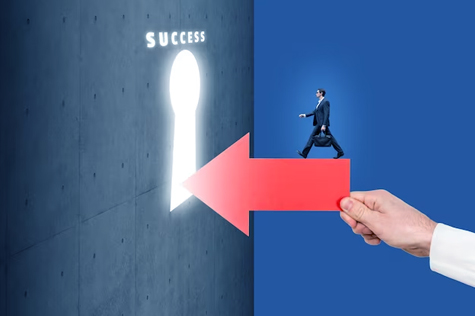
When you're looking to make a career switch, your résumé and CV should be strategically crafted to emphasize your transferable skills and relevant experiences while downplaying aspects of your previous career that are less relevant. Here's how your résumé and CV should look when making a career switch:
Functional or Combination Format
Consider using a functional or combination résumé and CV format. These formats allow you to highlight your skills, achievements, and experiences without emphasizing the chronological order of your work history.
Professional Summary or Objective Statement
Start your résumé and CV with a professional summary or objective statement that clearly states your new career goal and why you are well-suited for it. Explain how your background and skills are relevant to the new career.
Highlight Transferrable Skills
Emphasize the transferable skills you've acquired in your current or previous roles that are applicable to the new career. These may include skills like project management, leadership, problem-solving, communication, and teamwork.
Relevant Experience
Focus on experiences and achievements that demonstrate your ability to excel in the new career. Include details about projects or tasks that are transferable to the new role.
Customize for Each Application
Tailor your résumé and CV for each job application by emphasizing the skills and experiences most relevant to the specific role you're pursuing. This demonstrates your commitment to the new field.
Skills Section
Include a dedicated skills section that highlights both hard and soft skills that are applicable to the new career. Mention technical skills, certifications, and industry-specific knowledge, if relevant.
Education
Your educational background is still important. List your relevant degrees, certifications, or coursework that align with the new career path. Include any relevant training or certifications you've pursued.
Professional Network and References
Leverage your professional network and seek references who can vouch for your skills and abilities related to the new career. Their endorsements can carry weight.
Explain the Transition
In your cover letter, explain your career switch and the rationale behind it. Address why you're passionate about the new field and how your past experiences make you a valuable candidate.
Consider Additional Education or Training
If you've acquired new skills or knowledge relevant to the new career through additional education or training, be sure to include this information in your résumé and CV.
Online Presence
Update your LinkedIn profile to align with your new career objectives. Join industry-related groups and engage with content relevant to your desired field.
Be Persistent and Patient
Recognize that making a career switch may take time and may require you to apply for positions that serve as stepping stones to your ultimate goal. Be persistent in your job search and open to learning and growth in your new field.
Making a career switch is challenging, but a well-structured résumé and CV that highlights your transferable skills, relevant experiences, and passion for the new career can significantly increase your chances of securing interviews and opportunities in your desired field.
Thank you very much. The result is excellent, I will advise one of my colleague to contact you for his resumé.
You're professional. Thank you so much, and frankly you're the best.
Thank you very much. It's awesome.
I appreciate your effort from the bottom of my heart. I got satisfaction from your work.